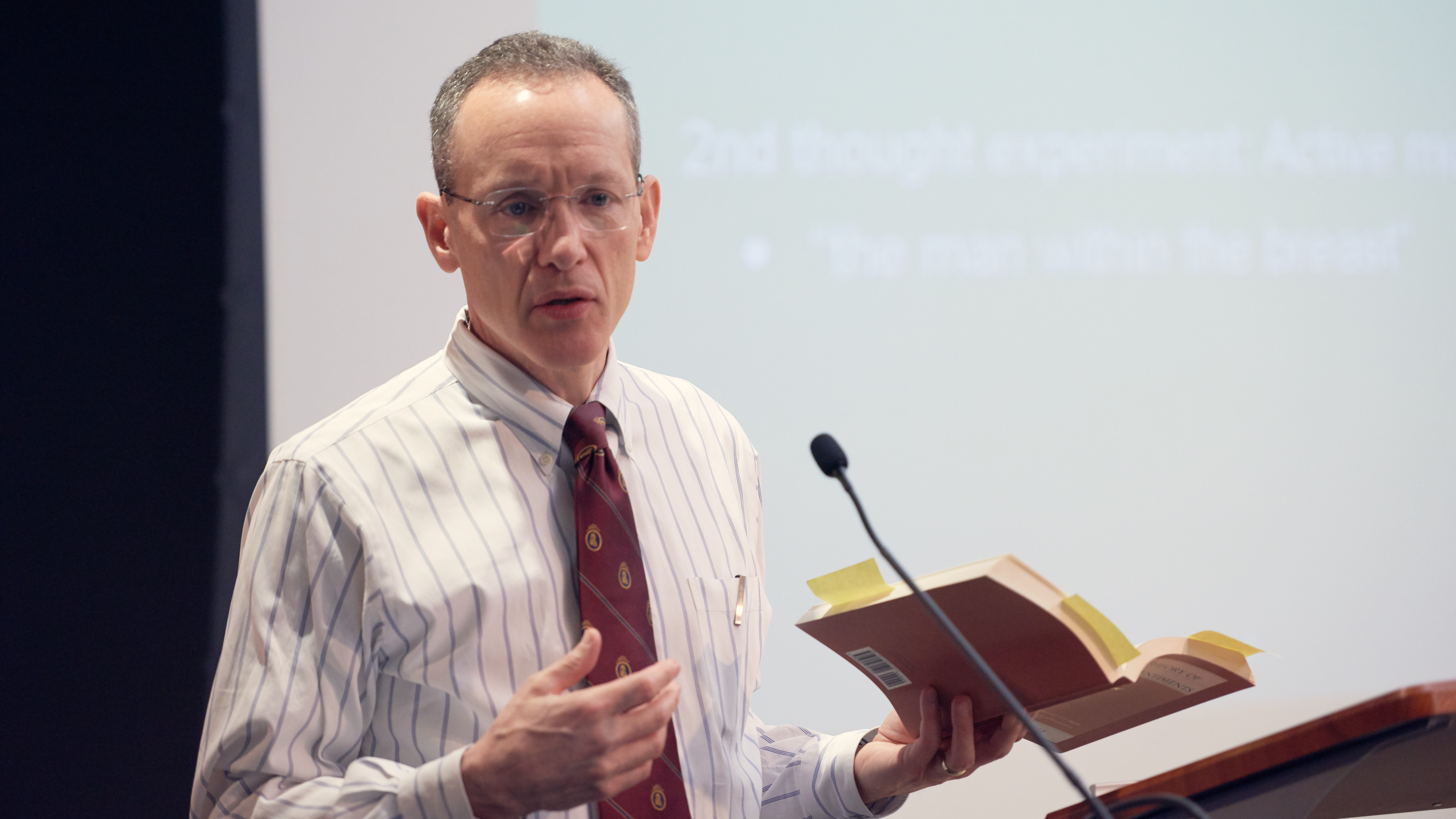Senior Scholar Daniel Klein Lectures on Adam Smith’s Moral Theory
Senior Scholar Daniel Klein charges students to act virtuously for the sake of duty and conscience, not merely because of altruistic feelings.

On Wednesday, April 17, Assistant Professor of Economics Paul Mueller hosted Senior Scholar Daniel Klein to speak about Adam Smith’s moral theory, which represents a larger body of Scottish philosophy and has been highly influential in Western thought. Smith’s theory proposes that impartial spectators can help us form better moral judgments and compel us to act rightly.
In his lecture, Klein showed that Smith’s impartial spectator is a higher being whose representative resides in all people. One might think of this representative, or the “man within the breast,” as his or her “conscience.” According to Klein, the fact that multiple people have a common conscience points to a higher impartial spectator, God, from whom they are constantly seeking approval.
One often thinks of the virtuous man as a person whose heart and motivations are “in the right place;” a good person is someone who cares about the plight of the poor or those who are suffering. But Smith’s theory shows that the approval or disapproval of one’s fellow man, and by implication the impartial spectator, is a greater motive toward benevolence than kind feelings. According to Klein, Smith believes that the more virtuous man is not the one that feels benevolence toward others, but is the one who acts benevolently out of a desire for approval.
This idea may seem upside down and backwards. Christians tend to think the truly virtuous person is altruistic and selfless. Acting out of a desire for approval is selfish, so how could it be virtuous? In Smith’s view, virtue is about recognizing one’s duty to obey the rules of society as well as one’s duty to constantly examine the impartiality of the rules. If by doing so one actively seeks the approval of God, as informed by his or her representative (the “man within the breast”), he or she begins to become like Him. Therefore, it is virtuous to seek the approval of the impartial spectator because God is the definition of goodness. When one acts in such a way that would please God, then he or she will become more virtuous and behave benevolently toward all. “I don’t think it’s right when people go around saying they really care about the poor or feel people’s pain,” Klein said. “That’s not what virtue is about. Virtue is about being serious and responsible to rules that serve the interest of those people.” Smith would agree, as he wrote, “The virtuous man is the slow, gradual, and progressive work of that great demigod within the breast. Every day some feature is improved. Every day some blemish is corrected.”
As Christians, students at The King’s College tend to place value on the orientation of their hearts toward God and others. After the lecture, many students asked Klein how to apply the theory to their own daily lives. Following Smith’s tradition, Klein encouraged the audience to not only feel rightly but to act rightly because behaving rightly and benevolently, sometimes in spite of one’s feelings, is noble and virtuous.




